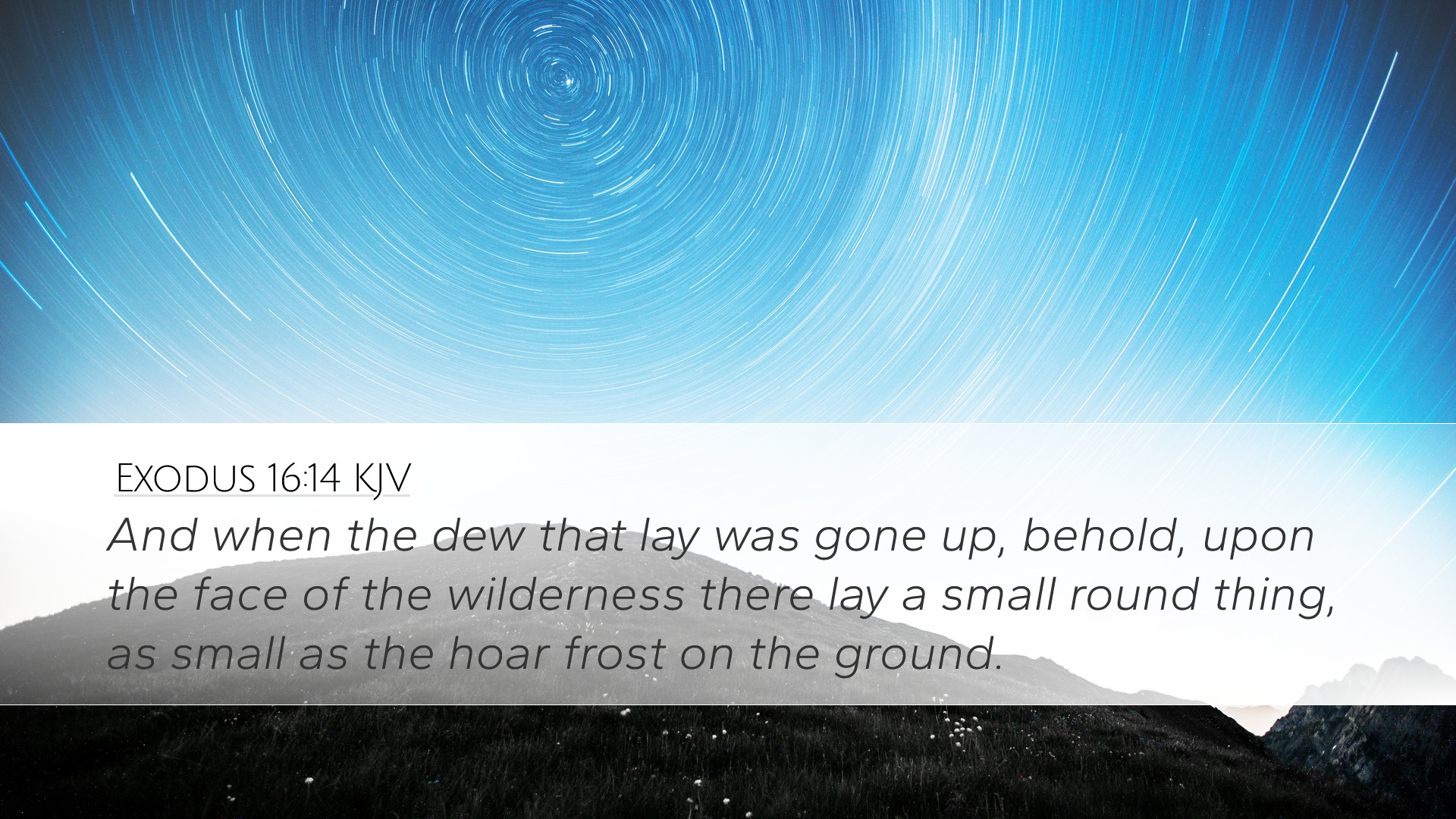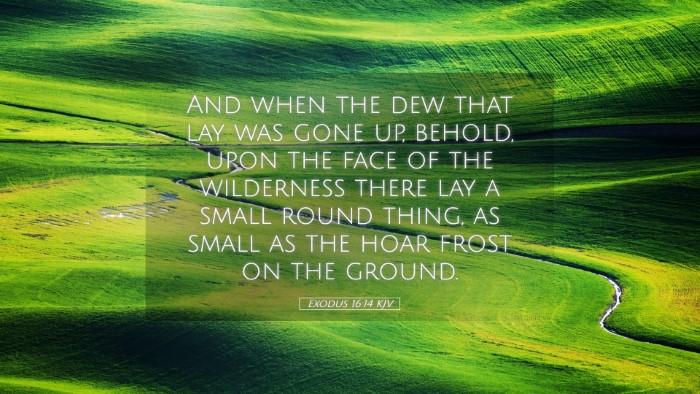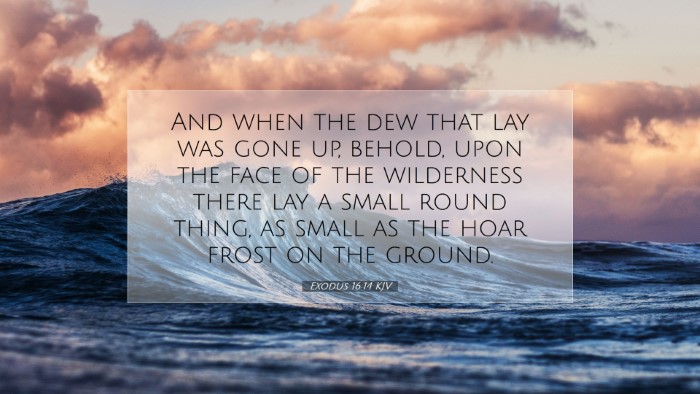Commentary on Exodus 16:14
Exodus 16:14 states, "And when the dew that lay was gone up, behold, upon the face of the wilderness there lay a small round thing, as small as the hoar frost on the ground." This verse occurs in the context of the Israelites' journey through the desert after their exodus from Egypt and the miraculous provision of manna.
Contextual Overview
The narrative of Exodus 16 serves to illustrate God's provision for His people in their time of need. After leaving Egypt, the Israelites found themselves in a desolate wilderness where resources were scarce. Their complaints regarding lack of food prompted a divine response. The Lord promised to provide manna from heaven, thus testing the Israelites’ faith and obedience.
Insights from Commentaries
Matthew Henry's Commentary
Matthew Henry emphasizes the miraculous nature of manna and its significance as a daily provision from God. He notes that the dew served as a precursor to the manna, suggesting how God prepares His blessings and leads His people to rely on Him daily. Henry highlights the lesson that God's gifts, though often small and humble, are sufficient for our needs. He suggests that this provision symbolizes the spiritual nourishment found in Christ, akin to the bread of life.
Albert Barnes' Commentary
Albert Barnes points out that the description of "small round thing" indicates the uniqueness and delicacy of the manna. He discusses various interpretations of the original Hebrew term used, which can imply a sense of wonder and mystery surrounding this provision. Barnes notes that the manna's appearance "as small as the hoar frost" suggests both its beauty and the transient nature of God's blessings. This invokes a reminder for believers to appreciate the daily provisions and to trust in God’s consistent care, even when circumstances appear bleak.
Adam Clarke's Commentary
Adam Clarke, in his exegesis, explores the theological implications of the miraculous supply of manna. He notes that the manna served as a type of Christ, foreshadowing His incarnation and the sustenance He provides for believers' spiritual journeys. Clarke underscores the idea that the manna fell every morning, teaching the Israelites to gather it daily—a metaphor for the Christian life that requires continual dependence on God. He discusses the symbolism embodied in the act of gathering manna, which represents diligence in faith and seeking the Lord's provision daily.
Theological Reflections
This verse and its surrounding passages present rich theological insights about divine provision, human dependence, and the nature of God’s care. The act of God providing manna also signifies His covenant faithfulness, reminding the faithful that He is a God who responds to His people's needs, not just in extraordinary events, but in the daily rhythms of life.
Practical Applications
- Faith in God's Provision: Just as the Israelites learned to trust God for their daily bread, modern believers are encouraged to rely on God for their needs, both spiritually and physically.
- Daily Spiritual Nourishment: The gathering of manna serves as a reminder for Christians to seek spiritual nourishment each day through prayer and Scripture reading.
- Thankfulness for God's Gifts: The acknowledgment of both the ordinary and extraordinary provisions in life cultivates a heart of gratitude.
- Understanding Christ as the Bread of Life: The typology of manna leads Christians to reflect on Jesus as the true bread from heaven, who fulfills every spiritual need.
Conclusion
Exodus 16:14 encapsulates profound lessons of faith, provision, and the importance of dependence on God. By contemplating the insights from renowned commentators, believers can deepen their understanding of God's character and His desire to care for His people amidst hardship. The scriptural account encourages an attitude of reliance on divine grace, fostering a robust faith that acknowledges God's continuous work in the lives of His people.


